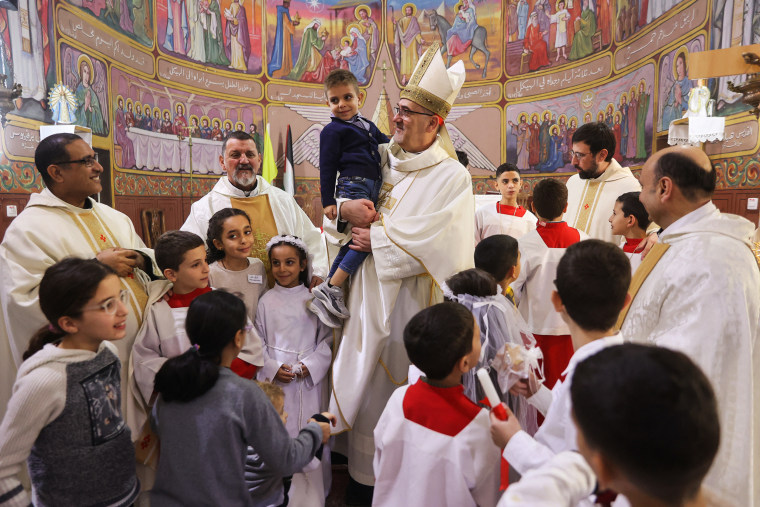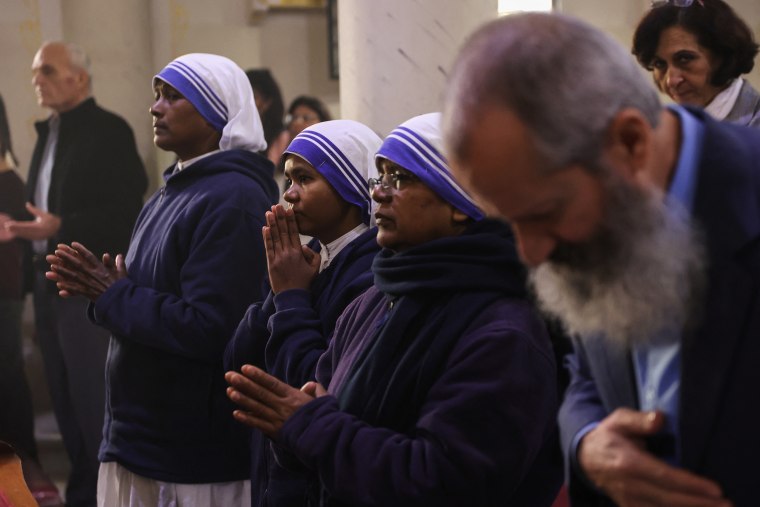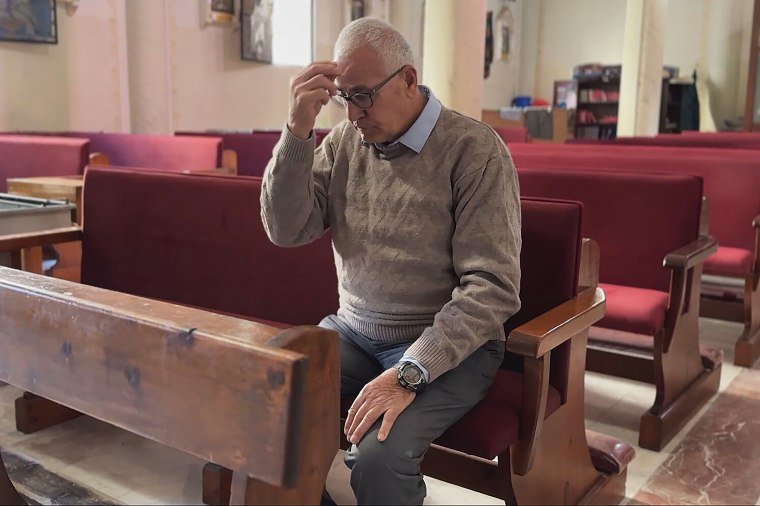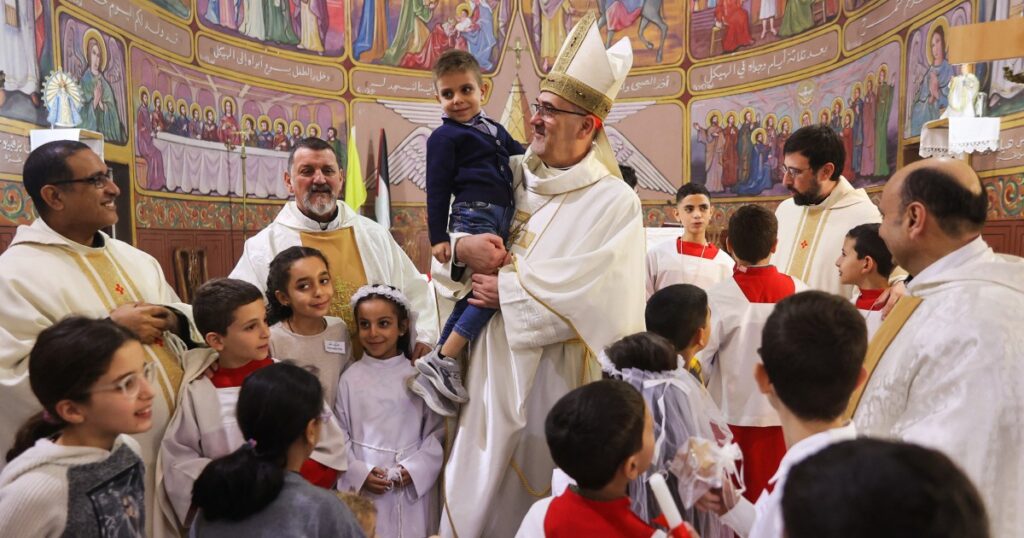BETHLEHEM, West Bank — In the small town of Bethlehem, you can barely hear a whisper this Christmas.
Palestinian scouts paraded through the streets without their traditional instruments of drums, horns and bagpipes. There was no jubilant countdown to the lighting of the Christmas tree in the main square. There is actually no Christmas tree.
Bethlehem is experiencing its second gloomy Christmas since the start of the war in Gaza. As fellow Palestinians continue to be killed, faith leaders and residents are grappling with how to celebrate the holiday.

“Bethlehem is the capital of Christmas. It’s supposed to be the best time of the year. Nothing like that happens because we’re in mourning,” said Bethlehem Evangelical Lutheran Christmas Church. Pastor Munter Isaac told NBC News.
Next to the altar where Isaac preaches is an unusual nativity scene. For the second consecutive Christmas, the baby Jesus is wrapped in a keffiyeh, a traditional Palestinian scarf, and placed on top of a pile of rubble. Isaac said it was a reminder of the thousands of Palestinian children killed in Israeli attacks during the war. “We see Jesus in all the children pulled out from under the rubble of Gaza.”
Apart from its suffering in Gaza, Bethlehem faces its own challenges.
Its economy relies heavily on tourism, but few foreign tourists have visited the occupied West Bank city amid the war sparked by Hamas’s Oct. 7, 2023, attack on Israel. This is compounding the economic misery caused by the coronavirus pandemic, which has also devastated the tourism industry.
“Honestly, this is a desert,” said Ronnie Tabash, whose family has run a gift shop near the Church of the Nativity for nearly a century. At its worst, when there were no pilgrims or tourists, two months went by without a single sale.

Meanwhile, an Israeli-built wall partially surrounds Bethlehem, cutting it off from Jerusalem and curbing housing construction and urban growth. Israel says the wall is a necessary security measure to deter suicide bombers. However, in 2004, the International Court of Justice ruled that this was illegal under international law.
This difficulty means that many young people are leaving Bethlehem and emigrating abroad in search of a better future, and there are fears that the Christian community in the city where the faith was born is in decline and may one day disappear. There are growing concerns about
“We are very concerned,” Isaac said. “This is beyond the point of danger.”
Life is never easy for older Christians. At the home of 79-year-old Nouha Taraji, her landline beeps loudly as she tries to call her relatives in Gaza, but is once again unable to get through.
“That’s why we didn’t put up a Christmas tree,” said his widowed grandmother. “You wouldn’t feel good if you did that while they were suffering there.”
Taraji was born in Gaza City but has lived in Bethlehem for nearly 40 years. Four of her siblings were still alive in the Strip when war broke out more than a year ago. But she said one of her sisters died in an Israeli attack and her brother died of kidney disease without receiving treatment, as Gaza’s health system collapsed.
Her two surviving siblings, sister Samhya Azzam and brother Atallah Taraji, are among the hundreds of Christians taking refuge at the Holy Family, a Catholic church in the ruins of Gaza City. . The family falls asleep to the sounds of nearby airstrikes and the constant din of Israeli drones overhead.

“We always ask God to protect us and protect us from all evil,” said Atallah, 77, a retired surgeon. Atallah once traveled the world, but now he rarely leaves the church grounds, sleeping on a cot in a crowded storage room.
During NBC News’ visit to Gaza, Samhya and Atala called their sister Nuha in Bethlehem. This time the phone was connected.
“Happy New Year. May you rest in peace,” Samhere, 74, told his sister over a cracked phone, urging her to celebrate Christmas no matter what. “Greetings to all of you, please be as happy as possible. Please be happy.”



